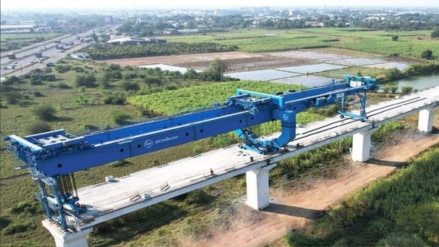The Centre’s plan to “encourage states, which continue to charge high stamp duty” to bring these imposts down as part of a combined effort to accelerate urban development may not find much traction among them, industry executives and policy watchers believe. This is because they fear revenue loss and erosion of of fiscal autonomy, as concerns persist over the rate of growth of their own tax revenues and assorted transfers from the centre.
However, many of them cited the case of Maharashtra, which saw a rise in revenue after the stamp duty reductions carried out during the pandemic, as the lower rates boosted property transactions.
Stamp duties, levied on transfer or registration of deeds and financial instruments, are a major source of own tax revenues (OTR) for the states. The relative importance of stamp duties in the states’ fiscal management has increased after state VAT/sales tax was subsumed in the Goods and Service Tax seven years ago. After the sales tax/VAT on auto fuels, which is yet to be brought under the GST, stamp duty/registration free is the second largest OTR component for states, where they still have absolute discretion on.
In the last five fiscal years, an average of 10.6% of the states’ OTR came from stamp duties/registration fee.
The Constitution empowers the Union government and state to legislate provisions regarding stamp duties as per their competence, under the Union and State Lists in the Seventh Schedule.
According to sources, the finance minister’s advice to the states that are charging high stamp duties to cut the levy is going to be difficult also because of the various complexities involved in the process.
The stamp duties vary significantly across states (see table), with some even maintaining different levies for men and women.
Anuj Puri, chairman of property consultant Anarock Property Consultants said: “The stamp duty rate payable on the sale agreement, is fixed by the respective state governments and therefore varies. The rates vary between rural and urban areas in the same state as well and city-wise. Properties registered on women’s names have different rates in many states.”
On whether states will agree to reduce the duties, Puri said: “This is a very subjective matter and is dependent on the concerned states, their priorities, and the state of their markets. States like Maharashtra have tasted success (in terms of revenue) with a rate cut in the past. However, it cannot be forecast which other state would toe that line.”
Amid Covid-19 in 2020, the Maharashtra government reduced the stamp duty on property registration by 3% from 1 September to 31 December 2020, and by 2% from January 2021 to March 2021 to encourage property transactions.
According to Vivek Rathi, national director- research at Knight Frank India, the Union government’s advice, if acted upon by stats, would indeed boost property market transactions by enhancing purchase activity and better compliance of property title registrations. However Rathi added that the state governments might need some fiscal support in lieu of foregoing significant revenues from these taxes.
Implementing it (rate cuts) for some sections of consumers, particularly women, would help the cause of women empowerment, as property ownership among Indian women remains extremely low, he said.
Sanjay Dutt,.managing director and CEO at Tata Realty said a more specific direction from the Centre, like 0% stamp duty for affordable homes would have made more sense. A 3-5% reduction in stamp duty for a specified period, say, till the end of the current financial year would have helped too. He added that the duties might also need to be reduced for a longer period of time, by 2-3%.
Maharashtra last time took the lead and benefited from stamp duty cut. More importantly the fear of losing revenue went away as the collection had risen due to higher transactions. ” I am sure more states would follow after seeing the success of others,” he said.
He said the country should increase women ownership in this country and all states should consider this. However, Niranjan Hiranandani, managing director of Hiranandani group said while BJP ruled states will readily follow, other states could follow it on the assumption that they would get more funds from the Centre for welfare schemes.
